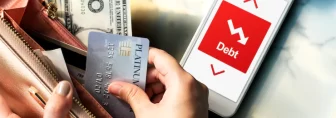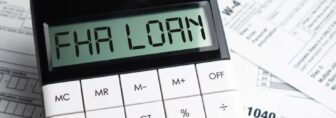Emergency Fund Options For Self-Employed Professionals

Who doesn’t need money? We all need cash for bills and expenses. And sometimes, we get stuck with an unforeseen bill due to an emergency. How do you take care of an emergency expense when you’re not a traditional employee? Let’s find out!
In this article, we will explore the various ways someone can get emergency cash while self-employed.
Did you know that 16.2 million Americans are self-employed? That is over 10% of the entire workforce. Being self-employed comes with its own perks, privileges, and harsh truths. It takes a whole new level of discipline and dedication. It’s just part of the job of being a business owner, an entrepreneur, or a freelancer. From filing taxes to conducting day-to-day operations, being self-employed is different from being a direct employee.
What Does It Mean To Be Self-Employed?
Being self-employed means that a person operates as their own business entity. They offer goods or services to clients on a contract basis. There’s a level of financial independence, higher schedule flexibility, and more burden. Gig workers, contract workers, freelancers, and home-business owners are all examples of self-employed people.
Self-employed individuals are not hired directly by a business. They’re not direct employees with a W2. Instead, they’re paid to do a job or task for a business. They’re a separate entity from that business.
What does an emergency fund imply?
The emergency fund supports you in several ways. It may help your supply chain in tough times. Often, you need it to manage real-time losses. Remember, small businesses or sole proprietorships run on minor capital stock. So, you must save a fund for the rainy days.
How much should you save in your emergency fund?
Setting up an emergency fund is no big deal. What’s more challenging is deciding how much you should invest. Moreover you have to decide upon your frequency of savings. You may invest a small amount daily. You can also save frequently, keeping a steady target in mind.
It’s hard to decide upon any hard and steadfast funds. However, the volume of your emergency funds depends on many factors. Some of the factors are:
- Your current location and the average lifestyle and business costs there
- The amount of taxes you pay for your venture
- The amount of rent you pay
- How many members are you taking care of, with your salary
- The insurance amount you have
- The imminent monthly expenses and contingent bills payable
- Your miscellaneous costs, like entertainment, traveling, education, etc
Options When You Need Emergency Money As A Self-Employed Person

Income for a self-employed person is often based on what kinds of work they’re doing and how much time they’re working. Their pay is consistently inconsistent.
One of the perceived benefits of being a self-employed person is that you can make as much money as you’re able to. The downside though is that money isn’t always consistent. Some weeks are better than others. It could depend on factors like what projects they’re working on or how many clients they have.
So, what do you do if you have an emergency expense, but don’t have the funds to cover it? Here are eight emergency fund options for self-employed professionals.
1. Savings
If you have emergency savings, this is the time to fall back on it. It could be a savings bank account, a stash of cash in your mattress, or even using part of an inheritance or investment account. Using a savings account is easier said than done. It requires saving money in the past.
If you don’t have a savings account, this is a good time to start one. Establishing an emergency savings account is the first line of defense. Designate a separate account. Contribute a portion of your weekly earnings to it. This will help build a financial cushion. This account should cover at least three to six months’ worth of living expenses. It can provide a safety net in case of unforeseen circumstances.
2. Friends And Family
In times of crisis, friends and family may be there to help. It can be awkward to ask. No one likes to admit they need help. However, it’s likely that at some point in life, your friends and family will turn to you for help.
If you decide to go this route, clearly communicate your situation and needs. Peer-to-peer lending can be complex. Some loved ones will just give you money. Other times, they’ll lend money to you. Regardless, make sure you and your peers discuss the repayment expectations. This includes the amount and timeline. With loans from family and friends, the stakes are higher. Failure to repay your loan risks destroying a beloved relationship.
3. Sell Items
Have old items around the house you no longer use? Now is the perfect time to use them to your own advantage. Sell them and use the funds to cover your emergency expenses. Start by identifying unused or non-essential items around your home.
Make sure there’s no sentimental value if you sell them. Electronics, clothing, furniture, and collectibles are all popular. Consider hosting a garage sale to quickly sell multiple items at once. Or utilize popular online platforms such as eBay, Craigslist, or Facebook Marketplace. Sometimes selling items can take a couple of days. If you need the money asap, be willing to negotiate!
4. Use A Credit Card
If you already have a credit card, you’re in luck! You can simply use your card and pay it off the next successful month you have.
If you don’t have a card currently, it may be possible to get one. Research credit cards with favorable terms and interest rates. Some cards offer introductory 0% APR (Annual Percentage Rate) periods. This can be helpful for short-term financing in cases like these. Be aware of interest rates, fees, and credit limits. Ensure you understand the terms and conditions of the credit card before applying.
5. Consider Personal Loan Options
Don’t have the credit score needed for a good credit card? In some instances, a personal line of credit could be a good fit. A personal line of credit works like a credit card. There are available funds you can borrow and repay as needed. These lenders don’t check credit either.
So, a low credit score isn’t a problem. Many accept self-employed income, including gig work income. Lenders that offer a personal line of credit may charge higher service fees than lenders that cater to customers with a higher credit score. Exercise caution and carefully review the terms to avoid surprise charges.
6. Freelancer Associations And Unions
Many industries have freelancer associations or unions that offer support to their members. Check if your line of work has a relevant organization that provides financial assistance, resources, or guidance during challenging times. These groups may also offer networking opportunities and professional development resources.
7. Negotiate Payment Terms With Current Clients
If your emergency is related to delayed payments from clients, open communication is key. Negotiate payment terms or installment plans to ensure a steady cash flow. Establishing transparent communication can help maintain client relationships while addressing your immediate financial needs.
8. Get Another Side Hustle
At this point, you’re no stranger to taking on gigs and working unusual hours. If you have time in your day, consider taking on another side hustle. There’s no shame in having a second, third, or even tenth side hustle.
Are you good with technology or have valuable skills? Consider online gig economy platforms. These include sites like Upwork, Fiverr, or TaskRabbit. You can offer services such as writing, graphic design, virtual assistance, or handyman work. Rather spend your time driving? Gigs like DoorDash and Uber are always options too.
Concluding Thoughts
Building a robust financial safety net is essential. Especially for self-employed people. Combine traditional savings strategies with innovative financial solutions. This will allow you to navigate unexpected emergencies. And it can bring greater confidence.
Remember to plan and explore multiple options. Seek professional advice when needed! That will help ensure a strong financial foundation. Even in the ever-changing landscape of non-traditional employment, there’s hope.
An emergency can strike out of nowhere and mess up your budget. Life throws surprises at times. There’s no shame in not having the means to deal with emergencies. There’s help available for you.
Read Also:


























